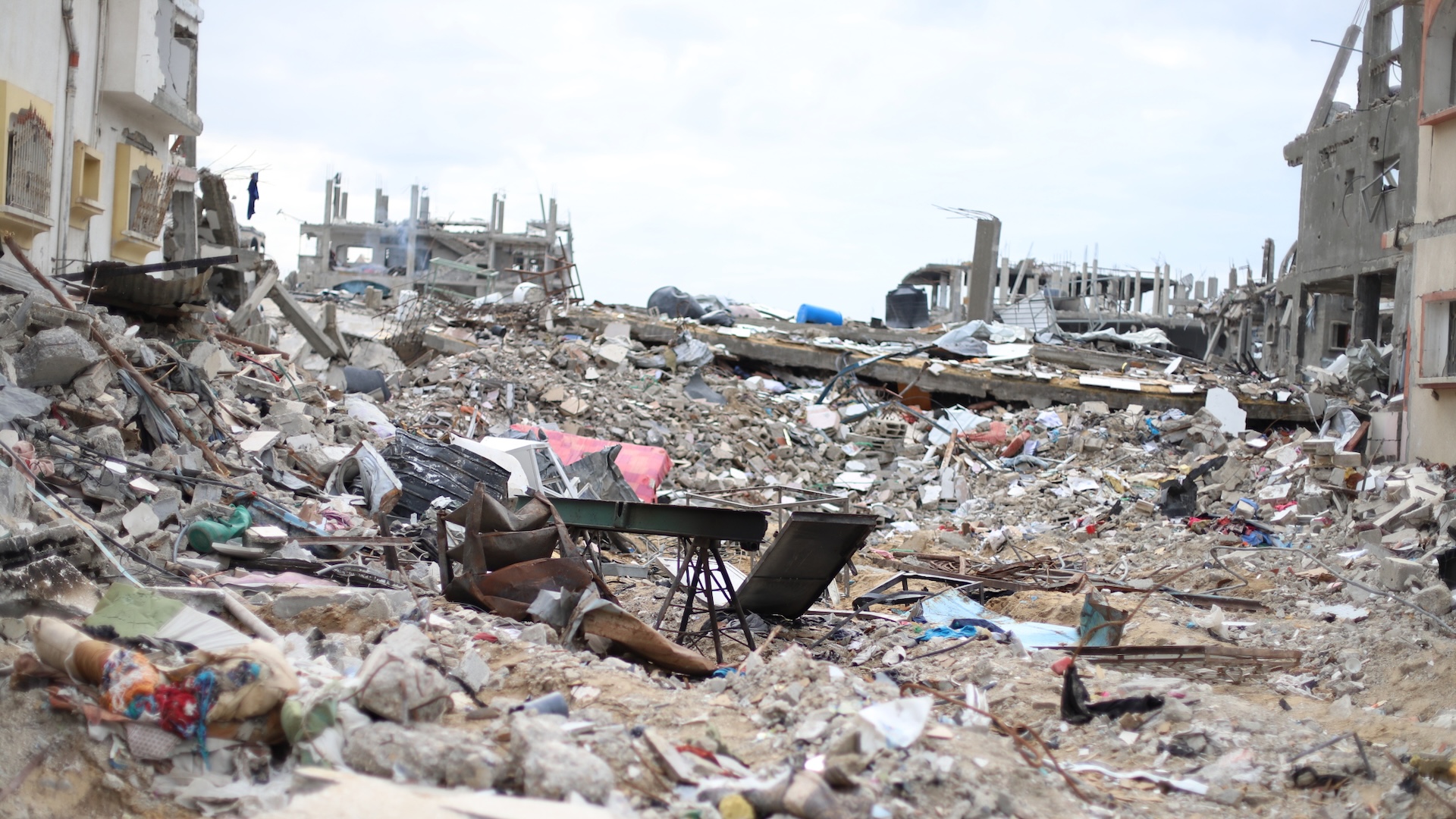Today (2 May) marks two months since the Israeli authorities closed all border crossings into Gaza and stopped any aid from entering the territory. This outrageous and illegal act has pushed Gaza into the deepest crisis it has experienced yet in more than 18 months of war. There are simply no words to describe this unprecedented catastrophe.
After two months without a single new delivery of food, water, medicine or fuel, existing supplies inside Gaza have been almost entirely depleted. Food products such as meat, fruits, eggs and dairy have all but run out, and any items still available to buy in the market have skyrocketed in price: our colleagues report that a single bag of flour can cost as much as $300, a figure no one in Gaza can afford.
Finding even a small amount of food has become a daily struggle and most families are now surviving on a single meal per day, mostly consisting of pasta, rice or canned food. Mothers say they are resorting to desperate tactics to try and make what little food they have go further, such as milling dried pasta to create flour. Each day they are forced to walk long distances to find clean water or wood to cook with. Our partners tell us that famine is not on the horizon: it is already happening. People dream of finding a piece of bread.
- I’m an aid worker in Gaza – the situation has never been worse
- Meet the heroic mum who faced gunfire and risked her life to save hundreds of children from war
- Donkeys are now the main form of transport in Gaza. Meet the vet keeping them alive
With acute hunger widespread, people’s health is rapidly deteriorating. Doctors at Al-Awda Hospital, run by ActionAid’s partner Al-Awda, report seeing a steep rise in the number of pregnant and breastfeeding women with moderate or severe malnutrition, anaemia and iron deficiency since the blockade started, and say that most babies are being born underweight. Almost 1,000 children were diagnosed with acute malnutrition in the first two weeks of April alone, OCHA data shows.
Yet doctors in Gaza’s overwhelmed health system are increasingly struggling to treat those impacted by malnutrition, as well as the dozens of people injured by Israeli military airstrikes each day, because of the lack of medicines, medical equipment and fuel – a situation which is already resulting in people dying otherwise avoidable deaths.
More than 420,000 people have been forcibly displaced from their homes in the six weeks since the brief ceasefire ended, yet the aid blockade means there are no new tents or other materials available for them to use for shelter. With two-thirds of Gaza currently covered by Israeli-issued evacuation orders or otherwise designated as ‘no go’ zones, people are being crammed into an ever-shrinking space, where they have none of the basics needed to sustain life. Women and girls are being uniquely impacted, as essentials like period products and nappies for newborns become luxury items which are completely out of reach, and the lack of privacy increases the risk of gender-based violence.
Every day that this inhumane aid blockade continues, the catastrophe deepens, yet this is a crisis that is entirely avoidable and man-made. At the same time as people inside Gaza are going hungry, outside the territory, humanitarian organisations have enough food ready and waiting to be delivered to sustain the entire population for three to four months. Instead, more than 2.2 million Palestinian people in Gaza are being deliberately starved in what amounts to an act of collective punishment.





